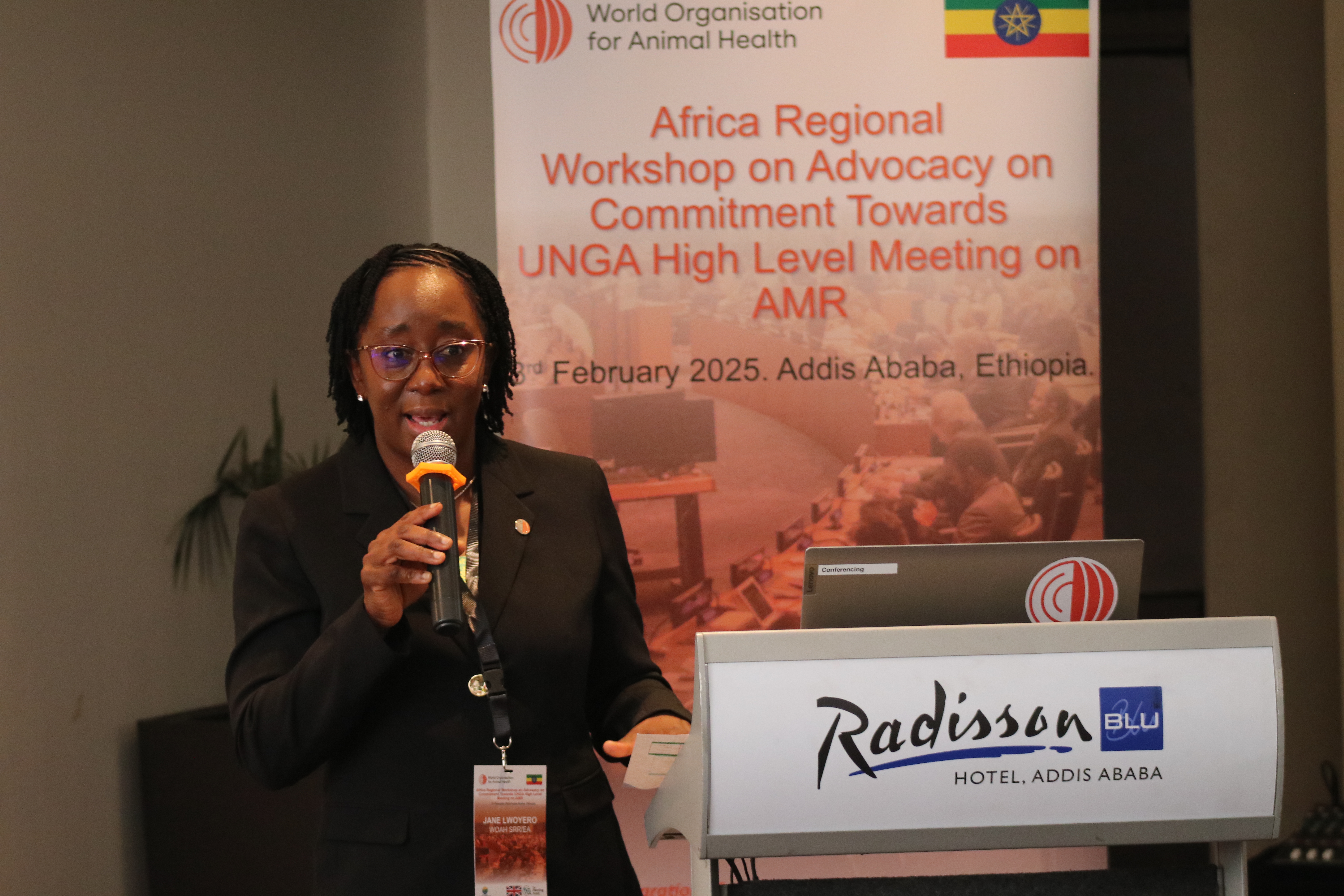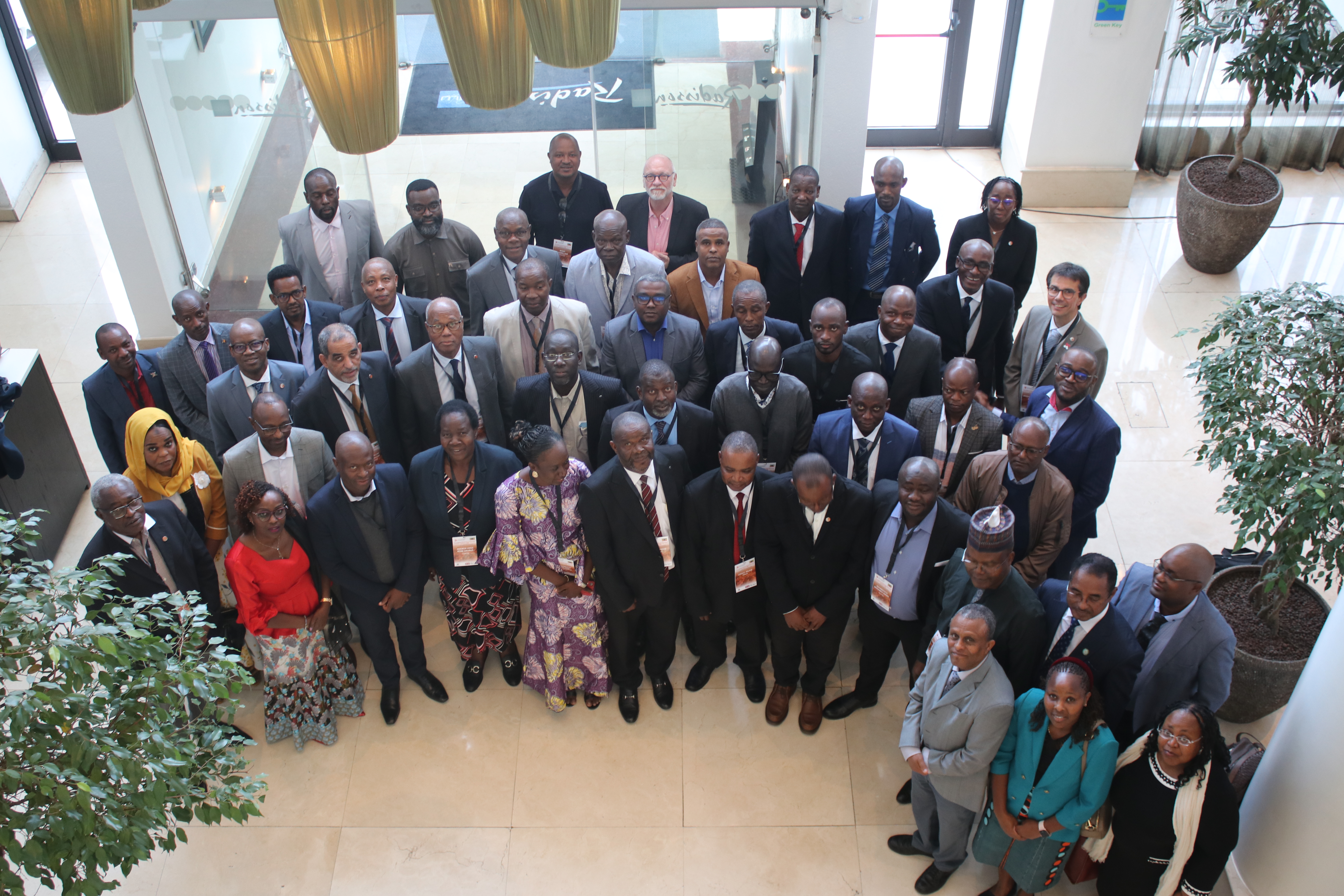
Antimicrobial Resistance (AMR) continues to pose a global threat, with Africa facing significant challenges in preventing the spread of drug-resistant “superbugs” in both human and animal health sectors. Recognizing the urgency of country follow-up on the political declaration endorsed by their respective governments, the World Organisation for Animal Health (WOAH) organized an AMR Workshop on Advocacy on commitment Towards the High-level Meeting (UNGA-HLM) on AMR, in Ethiopia back-to back with the 26th Conference of the WOAH Regional Commission for Africa.
This pivotal event brought together representatives from WOAH African members to keep abreast with current and future WOAH Efforts to combat AMR, outline regional strategies in relation to the new UNGA commitment targets and practical steps to address AMR in animal health while sustainably implementing One Health AMR national Action plans.
AMR not only threatens the health of people and animals but also has economic implications, affecting livelihoods dependent on agriculture, livestock, and food safety. WOAH’s ongoing mission has been to support countries in adopting policies that ensure the responsible use of antimicrobials, especially in the animal health sector.
The AMR Workshop was a significant step in WOAH’s broader 7th Strategic Plan to combat AMR. The workshop had three major objectives:
Raising Awareness on AMR Policies: WOAH provided the participants with updates on its AMR-related initiatives, highlighting the importance of implementing commitments made during the United Nations General Assembly’s (UNGA) high-level meeting on AMR in 2024. Participants were encouraged to integrate these global standards into their national veterinary practices to safeguard the future efficacy of antimicrobials. The use of the WOAH list of diseases for which vaccination could reduce the use of antimicrobials was highlighted as essential guidance to member countries during prioritization of animal diseases for vaccination.
Progress on AMR Monitoring Tools: A significant portion of the workshop focused on key systems like ANIMUSE, which tracks antimicrobial use in animals, and the VSAFE platform, a Veterinary Monitoring and Surveillance System for Substandard and Falsified Veterinary Products. WOAH emphasized the need for countries to continue using these online platforms for data reporting, making use of country reports to contributing to more comprehensive evidence based national data for policy decision making and investment into AMR-National Action Plans.
Implementation of Global Commitments: The workshop provided a platform for delegates to discuss the challenges and obstacles that African countries face in resource mobilization for implementing global AMR commitments. WOAH offered technical support to help countries address these barriers and ensure the continued effectiveness of antimicrobial treatments.
The workshop in Ethiopia was marked by high levels of collaboration among multiple stakeholders, including the Federal Ministry of Agriculture of Ethiopia, FAO and AU-IBAR. These partnerships are key to the success of the One Health approach, which promotes collaboration between human, animal, and environmental health sectors to address complex health issues like AMR.
The workshop also encouraged countries to publish and share their national AMU reports and disseminate them while sharing experiences across sectors, fostering a stronger sense of multisectoral cooperation. This WOAH workshop sought to facilitate conversations leading to long-term regional solutions that are both practical and scalable.
As the workshop concluded, there was an optimistic sense of commitment to tackling AMR across the African continent despite the challenges faced. Delegates pledged to continue sharing knowledge, improving their reporting of antimicrobial usage, and prioritise efforts to contain AMR in animal health.
WOAH will continue to provide technical and policy support to help its members implement their AMR National Action Plans (NAPs) and track their progress. This collaborative effort will be vital in protecting the health of both animals and people across the continent.


